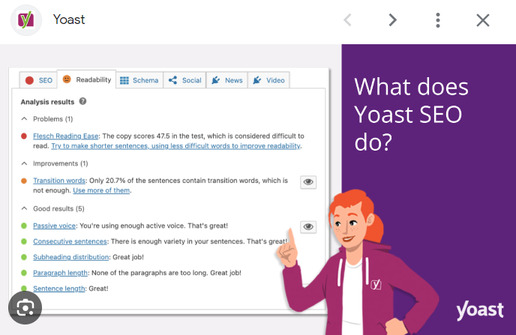Keywords are an important foundation of affiliate marketing. You want them to guide your audience to your blog, inform them, and engage them to learn more.
So how do you choose the right keywords, where do you find them, and how do you incorporate them into your content?
So let’s look at ‘What are keywords and how do they work for affiliate marketing?’
- 1. What are Keywords in Simple Terms?
- 2. Why are Keywords Important in Affiliate Marketing?
- 3. What are Examples of Keywords?
- 4. What are Seed Keywords
- 5. What are Long-Tail Keywords?
- 6. Keywords Within Keywords!
- 7. What’s Search Intent?
- 8. Where Can I Find Keywords For SEO for Free?
- 9. What is Keyword Placement in Content Writing?
- 10. How do you Write SEO Content with Keywords?
1. What are Keywords in Simple Terms?
Keywords are the words you type into search engines when you look for information or products.
For example, these can be questions, product names, one word, or many words.
Targeting the right keywords for your blog is how you show up on page 1 of search results.
For example, for a blog about yoga, a keyword search of Jaxy shows:
- What is power yoga?
- Power yoga poses
- Yoga or meditation
- Deep relaxation yoga
2. Why are Keywords Important in Affiliate Marketing?
Like Batman and Robin, keywords and affiliate marketing work better together!
Keywords are the secret weapon to reach your audience. You use the same language as your audience when they search online so they can find your blog.
In the world of Search Engine Optimization (SEO), the right keywords are your magic potion. Blend them into your useful content, and voila, you’ll rank in the search engine results.
This boosts your visibility, but it also delights your audience by delivering the help they were searching for.
Helpful content and low-competition keywords can also help your conversion rates. Also, by disclosing your affiliate relationship, your customers will trust you more.
Use keywords to promote products that resonate with your audience. You’re speaking their language and giving them what they want.
You’re saying, “Hey, I know what you like. Check this out!” And bam! You’re likely to see those conversion rates going up
3. What are Examples of Keywords?
Let’s say you want to teach people how to paint a fence. When I enter ‘how to paint a fence’ in the Google Search Bar this is what appears in Autofill below…
- How to paint a fence quickly?
- How to paint a fence with a spray gun?
- How to paint a fence with a sprayer?
- How to paint a fence quickly?
- How to paint a fence with a brush?
This Autofill feature shows you the keywords people are searching for. The questions they’re asking, and the help they need.
As a content creator, this is a great way to see what questions people ask. So you can tailor your content around these.

4. What are Seed Keywords
Your seed keywords are the broad, general keywords that relate to the topic of your blog. They are typically short, one or two words.
They’re pivotal starting points for your keyword research. Since they help you generate many related keywords.
For example, the Snap Fitness Blog’s topic and seed word is Fitness. Their other seed words are workout, weight loss, muscle building, cardio, and strength training.
It’s important to NOT get stuck on your seed keywords. Delve way deeper into your topic.
For example, my seed keyword is Affiliate Marketing. In the beginning, I started writing posts about affiliate marketing. But that’s not nearly specific enough.
People ask questions like ‘What are backlinks in blogging?’ and ‘What are niche topics to write about?’
This leads us to the power of long-tail keywords….
5. What are Long-Tail Keywords?
Long-tail keywords are phrases 4+ words long. Add your seed word to Google and watch the Autofill play out. Or add a word at the end like ‘for’ or ‘and’ or ‘without’…
- how to train a puppy to sit without treats
- best hiking trails in Yosemite National Park for winter
- DIY Christmas gift ideas for friends
- natural remedies for headaches and dizziness
Content creators, like you, research and discover long-tail keywords that are low competition.
These usually have low search volume as well, but remember every word and group of words on your post is a potential keyword. Over time as you build out your content, your authority grows and your content builds momentum.
Here’s what Affiliate Marketer Neil Patel says about long-tail keywords
“One of the basic principles of SEO is to find as many low-competition keywords as possible and include them in your content as naturally as you can.”
6. Keywords Within Keywords!
As a beginner blogger, you can target these long-tail keywords. As your authority grows you’ll see your posts reach page 1 results for more competitive keywords within the long-tail ones.
For example, here’s a result on page 1 of a Google search for Fence Paint.
Realsimple has targeted the long-tail keywords ‘7 Pretty Fence Paint Color Ideas’.
They’ve achieved first-page results for the highly competitive keywords ‘Fence Paint’. Good work!

- Webydo Review – Is this Website Builder Right for You?
- Astra WordPress Theme Review for Beginners
- Rocket.net Vs Bluehost – Which Hosting is Best for You?
7. What’s Search Intent?
This refers to the reason why someone is searching for a specific keyword. Do they want news, to learn a new skill, to buy something, or to be entertained…?
If your audience wants to learn how to paint a fence then that’s called an Informational Keyword.
If they want to buy paint for the fence, then that’s called a transactional or buyer keyword. This is where your keywords and content convert your audience from readers to buyers.
Examples of Transactional or Buyer Keywords
- Valspar Fence Paint
- Best Fence Paints
- Buy Paint for Fence
- Fence Paint for Sale
8. Where Can I Find Keywords For SEO for Free?
Your keyword research is an important part of your Search Engine Optimization (SEO) strategy. Done right your content will appear high up on search engine search results.
This means you’ll target the right people interested in what you have to say and promote. This leads to higher conversions for your affiliate offers. Keyword tools give you ideas and help you refine your search.
Popular Free Tools I use include
- Google Trends – see what’s trending in your niche
- The Hoth Keyword Tool
- Answer the Public
- Google Keyword Planner
- Small Seo Tools
You can try the Jaaxy Keyword Tool Here
Social Media and Forums
Look at what people are discussing and asking on social media and forums. For example, Facebook, Instagram, TikTok, YouTube, Pinterest, Reddit, and Quora.
Google’s ‘People Also Ask’ and ‘Related Searches’
The ‘People Also Ask’ and ‘Related Searches’ are goldmines to see what people are searching for online.
I’ve searched ‘what is the best type of yoga’ and here’s what appears in ‘People Also Ask’.

Any of these questions could be a blog post or you could do more research. I googled ‘Which yoga practice is best for…’ and Autofill gave me ‘Which yoga practice is best for weight loss?’
See how I’m finding more long-tail keywords. The keyword opportunities are endless!
9. What is Keyword Placement in Content Writing?
You want to find specific keywords that are the exact queries and issues people need help with. When you incorporate keywords into your content, think about the user experience.
You don’t want to overuse your keywords, as this makes your content difficult to read and understand.
Instead, focus on using your keywords in a way that’s natural and flows well with your content.

10. How do you Write SEO Content with Keywords?
Blog Post Title: Include the exact keywords in your blog post title. You can add captivating words to entice people to click on your link.
Captivating Title: For a more captivating title turn the keywords ‘How to Paint Bathroom Walls’ into ‘Mastering the Art: How to Paint Bathroom Walls for a Stunning Makeover’!
Yoast: I use Yoast which is a plug-in that helps you optimize your site’s content and keywords. This improves your blog’s rankings on search engines.
Keyword Placement
- Use the exact keywords within the first 200 words of your blog post and the last 200 words.
- Use them naturally throughout the content, around 5% of the total word count.
- Put them in the slug, e.g. www.paintskills.com/how-to-paint-bathroom-walls
- Use them in the H1, H2, H3 headings etc.
- Add them to alt-tags of images (but not too many).
Wrapping Up
Here’s a roundup of what I’ve discussed…
- Keyword research is an important part of affiliate marketing
- Refine your seed keywords to more targeted, specific long-tail keywords
- Use Google Autofill to find questions people are asking
- Consider the angle of your blog post in terms of Search Intent
- Use Keyword Research Tools for ideas and to refine your search
- Also, check Google ‘People Also Ask’ and ‘Related Searches’
- See what people are discussing and asking for help on social media and forums
- Place keywords naturally throughout your post, and follow best practices.
What are Keywords and How Do They Work for Affiliate Marketing
When you blog you want to make sure you consistently create helpful content for your audience. You’ll build authority with search engines and trust with your audience.
Keywords are like the backbone of your content marketing strategy. They give it structure, help drive traffic, and guide the topics you write about. The more specific you get the better your chance of ranking for these specific long-tail keyword terms.
A strong keyword strategy in place helps you build content that ranks higher in the search engine results pages (SERPs). And that’s where you want to be for success!
Photo by Nik Shuliahin ?? on Unsplash






